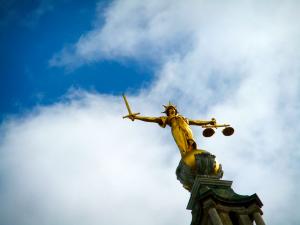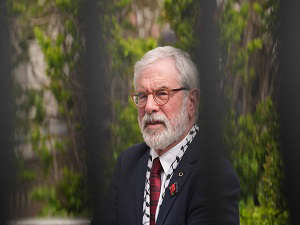
By Press Association reporter
The Irish Government is to appeal against a European court decision that found the UK did not torture the so-called Hooded Men during the Troubles.
The Hooded Men were 14 Catholics interned - detained indefinitely without trial - in 1971 who said they were subjected to a number of torture methods.
These included five techniques - hooding, stress positions, white noise, sleep deprivation and deprivation of food and water - along with beatings and death threats.
Earlier this year, the European Court of Human Rights (ECHR) dismissed Ireland's request to find the men suffered torture and said there was "no justification" for revising an original judgment in 1978 that held that while the men suffered inhumane and degrading treatment, they were not tortured.
The Department of Foreign Affairs in Dublin has confirmed it will appeal that ruling to the Grand Chamber of the ECHR.
"The request for a referral will be submitted to the court in Strasbourg before the deadline of June 20," a spokesman said.
The DFA spokesman added: "The March 20 ruling of the European Court of Human Rights on the Government's application for a revision of the 1978 Ireland v UK case has been fully considered by the Government, taking account of advice from the Attorney General.
"The Government has decided to request a referral of the matter to the Grand Chamber of the European Court of Human Rights."
The men were hooded and flown by helicopter to a secret location, later revealed to be a British Army camp at Ballykelly, outside Londonderry.
Kevin Hannaway, one of those interned, said: "Today's ruling is not only a mammoth step for us, but for many other torture survivors all around the world.
"We always knew the judgment was flawed, and that we had strong grounds of appeal, we are delighted the Irish Government has accepted our submissions and an appeal will now be lodged.
"We all intend on fighting this case to the very end on behalf of ourselves and those who have passed away since the treatment we underwent."
Mr Hannaway's solicitor Darragh Mackin added: "We warmly welcome the position adopted by the Irish Government in today's decision.
"From the day on which the judgment was handed down, we have engaged with the Irish Government in calling for an urgent appeal to be lodged.
"The international significance of this case is duly reflected by the fact that this case will now be referred to the highest court in Europe. The grounds were self-evident. We now look forward to an expeditious hearing in the Grand Chamber."


 Gerry Adams awarded 100,000 euro in damages after suing BBC for libel
Gerry Adams awarded 100,000 euro in damages after suing BBC for libel
 Victim held in room while masked men ransack Saintfield home
Victim held in room while masked men ransack Saintfield home
 Nesbitt not surprised if ‘devastating’ culture in RVH report repeated elsewhere
Nesbitt not surprised if ‘devastating’ culture in RVH report repeated elsewhere
 Pensioner, 82, killed in crash near Omagh
Pensioner, 82, killed in crash near Omagh
 Kneecap announce new song ahead of headline performance at London’s Wide Awake
Kneecap announce new song ahead of headline performance at London’s Wide Awake